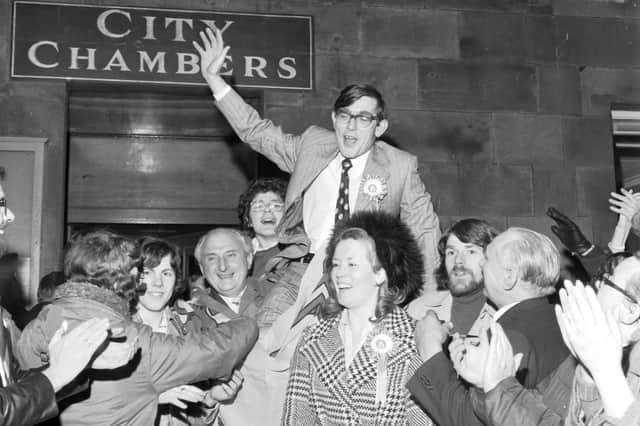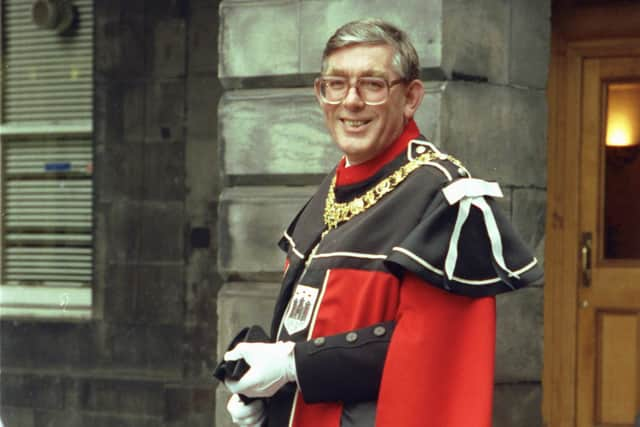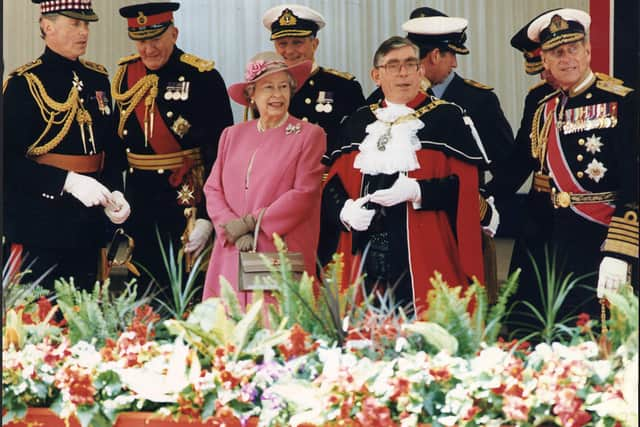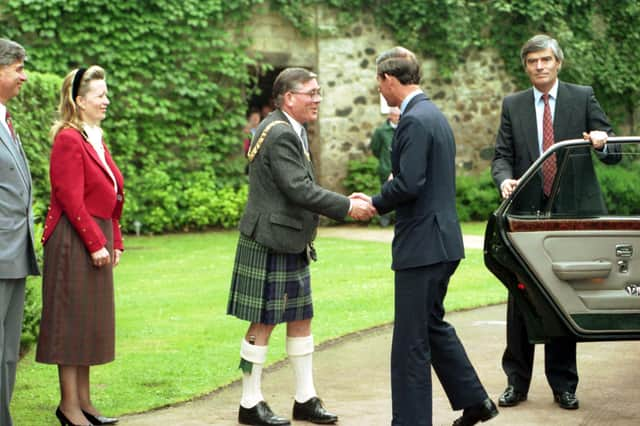Edinburgh's first SNP Lord Provost Norman Irons to be remembered at memorial service
and live on Freeview channel 276
Edinburgh's first SNP Lord Provost Norman Irons will be remembered at a memorial service next week in St Giles Cathedral.
Mr Irons, who died in November, aged 82, was a councillor in Corstorphine for 20 years. He served a Lord Provost from 1992 until 1996 and after retiring from the City Chambers was appointed honorary consul first for Denmark and then for Hungary.
Advertisement
Hide AdAdvertisement
Hide AdFormer Deputy First Minister John Swinney, who will speak at the service, said: "As a young political activist in Corstorphine 45 years ago, I had the great fortune to learn at first hand, from the example of Norman Irons, how to serve the people who elect you. I could not have had a better tutor and I will be forever grateful for the experience.


"When I joined the Scottish National Party in 1979 in Corstorphine, Norman Irons was by that time already a well established councillor, having won the Drum Brae ward in the City of Edinburgh District Council in a by election in 1976. Norman had established himself in the minds of his electors in Drum Brae as an energetic servant of everyone he represented - regardless of whether they had voted for him or not. No issue was too small for Norman – he was on the side of his community.
"Norman was an assiduous member of the City of Edinburgh District Council, who formidably put forward the priorities of his constituents and his party. But in doing so, Norman always ensured that he pursued his politics with respect and courtesy for the perspective of his opponents."
Mr Irons was made the Capital's first SNP Lord Provost in 1992 - 25 years before the party became the biggest group on the council and despite being one of only two Nationalist councillors at the time. Labour had fallen two seats short of an overall majority in the council elections, but accepted Mr Irons' offer of SNP support for Labour's in policy votes in return for him being made Lord Provost and his colleague Derek Williams getting a committee convenership.


Advertisement
Hide AdAdvertisement
Hide AdMr Swinney said: "That agreement opened up four enormously happy and successful years for Norman and Anne Irons as Lord and Lady Provost of our capital city. Norman and Anne worked tirelessly in their roles and brought much credit to the themselves and the city. For each of them, the privilege of being Lord and Lady Provost, was quite simply about service; serving the people of this city and working to make the city ever more successful."
Norman MacFarlane Irons was born during the Second World War, on January 4, 1941, to Dugald and Anne Irons. He was born in Glasgow, but the family moved to Edinburgh when he was just three months old.
He was educated at George Heriot's School and, after studying in London and Edinburgh, qualified as a chartered engineer. He began his working life with the international engineering consultancy Steensen Varming Mulcahy Partnership who famously had worked on the Sydney Opera House. And he later set up his own practice, Irons Foulner Consulting Engineers, with another colleague in 1983.


He continued his professional work throughout his political career, including his four years as Lord Provost, often getting up early and working in the office for several hours before beginning his civic duties.
Advertisement
Hide AdAdvertisement
Hide AdHe joined the SNP in the early 1970s and became a respected figure in the party and his home area in the west of Edinburgh. His by-election victory in Drum Brae in 1976 saw him beat Labour by 36 votes after a recount to become only the second Nationalist councillor in the Capital at the time. He would represent the area until he retired from the city council in 1996.


Mr Irons' daughter Elizabeth recalled how her father threw himself into the role of Lord Provost. She said: "Becoming Lord Provost of the city he loved was his proudest moment and for the next four years he and my mother worked 365 days a year. He relished hosting royalty and heads of state from around the world but equally enjoyed meeting residents of Edinburgh. He could be found on Christmas Day visiting the home for retired servicemen, the hospitals to meet new parents, and care homes; helping to support and raise the profile of local charities."
After his term as Lord Provost concluded, Mr Irons served as honorary consul for Denmark, 1999-2012 and honorary consul for Hungary, 2012-2018, also becoming Dean of the Consular Corps of Scotland, 2011-12.
Christoph Crepaz, honorary consul of Austria and current Dean, said: "Norman Irons' dedication to fostering international relations was evident throughout his career. As the former honorary consul of Hungary and, prior to that, the former honorary consul of Denmark, he played a crucial role in strengthening the ties between our nations. His commitment extended beyond borders, leaving an indelible mark on the Consular Corps and the broader diplomatic landscape.
Advertisement
Hide AdAdvertisement
Hide Ad"His leadership as Lord Provost showcased his unwavering commitment to public service and is a testament to his vision and determination, paving the way for future leaders in our community. Norman‘s warmth, wisdom, and willingness to collaborate were instrumental in creating a vibrant and supportive diplomatic community. His impact on many of us personally and the Consular Corps as a whole will stay in our memories."
Mr Irons died on November 26 after a long battle with Parkinson's Disease. Diagnosed with the condition in 2015, he was keen to support research into the causes of Parkinson's and donated his brain to the tissue bank at Imperial College London in the hope that it can help in the discovery of a cure or treatment.
Mr Irons is survived by his wife Anne, whom he married in 1966, daughter Elizabeth, who runs her own hospitality consultancy, and son Kenneth, who is a lawyer.
The memorial service, on Thursday, February 22, at 11am is at St Giles Cathedral, where Mr Irons was a member for many years. The family has said everyone is welcome to attend.
Comment Guidelines
National World encourages reader discussion on our stories. User feedback, insights and back-and-forth exchanges add a rich layer of context to reporting. Please review our Community Guidelines before commenting.